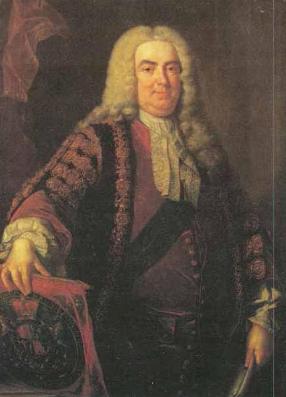Prime Path(素数筛选+bfs)
| Time Limit: 1000MS | Memory Limit: 65536K | |
| Total Submissions: 9519 | Accepted: 5458 |
Description
 The ministers of the cabinet were quite upset by the message from the Chief of Security stating that they would all have to change the four-digit room numbers on their offices.
The ministers of the cabinet were quite upset by the message from the Chief of Security stating that they would all have to change the four-digit room numbers on their offices.
— It is a matter of security to change such things every now and then, to keep the enemy in the dark.
— But look, I have chosen my number 1033 for good reasons. I am the Prime minister, you know!
— I know, so therefore your new number 8179 is also a prime. You will just have to paste four new digits over the four old ones on your office door.
— No, it’s not that simple. Suppose that I change the first digit to an 8, then the number will read 8033 which is not a prime!
— I see, being the prime minister you cannot stand having a non-prime number on your door even for a few seconds.
— Correct! So I must invent a scheme for going from 1033 to 8179 by a path of prime numbers where only one digit is changed from one prime to the next prime.
Now, the minister of finance, who had been eavesdropping, intervened.
— No unnecessary expenditure, please! I happen to know that the price of a digit is one pound.
— Hmm, in that case I need a computer program to minimize the cost. You don't know some very cheap software gurus, do you?
— In fact, I do. You see, there is this programming contest going on... Help the prime minister to find the cheapest prime path between any two given four-digit primes! The first digit must be nonzero, of course. Here is a solution in the case above.
1033The cost of this solution is 6 pounds. Note that the digit 1 which got pasted over in step 2 can not be reused in the last step – a new 1 must be purchased.
1733
3733
3739
3779
8779
8179
Input
One line with a positive number: the number of test cases (at most 100). Then for each test case, one line with two numbers separated by a blank. Both numbers are four-digit primes (without leading zeros).
Output
One line for each case, either with a number stating the minimal cost or containing the word Impossible.
Sample Input
3 1033 8179 1373 8017 1033 1033
Sample Output
6 7 0
题意:给定两个四位数,求从前一个数变到后一个数最少需要几步,改变的原则是每次只能改变某一位上的一个数,而且每次改变得到的必须是一个素数;
思路:将四位数以内的素数筛选出来,bfs时,枚举四位数的每一位上的每一个数;

1 #include<stdio.h> 2 #include<string.h> 3 #include<queue> 4 using namespace std; 5 6 struct node 7 { 8 int num; 9 int step; 10 }; 11 queue<struct node>que; 12 int n,m,flag; 13 bool p[10010],vis[10010]; 14 15 //素数筛; 16 void prime_search() 17 { 18 memset(p,1,sizeof(p)); 19 for(int i = 4; i <= 10000; i+=2) 20 p[i] = 0; 21 for(int i = 3; i <= 100; i++) 22 { 23 if(p[i]) 24 { 25 for(int j = i+i; j <= 10000; j += i) 26 p[j] = 0; 27 } 28 } 29 } 30 31 int bfs() 32 { 33 while(!que.empty()) 34 que.pop(); 35 que.push((struct node){n,0}); 36 vis[n] = 1; 37 int res,tmp,r,t,s; 38 while(!que.empty()) 39 { 40 struct node u = que.front(); 41 que.pop(); 42 if(u.num == m) 43 return u.step; 44 45 //枚举个位数 46 r = u.num%10; 47 for(int k = -9; k <= 9; k++) 48 { 49 t = r+k; 50 if(t >= 0 && t <= 9) 51 { 52 res = (u.num/10)*10+t; 53 if(p[res] && !vis[res]) 54 { 55 que.push((struct node){res,u.step+1}); 56 vis[res] = 1; 57 } 58 } 59 } 60 61 //枚举十位数 62 tmp = u.num/10; 63 r = tmp%10; 64 s = tmp/10; 65 for(int k = -9; k <= 9; k++) 66 { 67 t = r+k; 68 if(t >= 0 && t <= 9) 69 { 70 res = (s*10+t)*10+u.num%10; 71 if(p[res] && !vis[res]) 72 { 73 que.push((struct node){res,u.step+1}); 74 vis[res] = 1; 75 } 76 } 77 } 78 79 //枚举百位数 80 int tmp = u.num/100; 81 r = tmp%10; 82 s = tmp/10; 83 for(int k = -9; k <= 9; k++) 84 { 85 t = r+k; 86 if(t >= 0 && t <= 9) 87 { 88 res = (s*10+t)*100+u.num%100; 89 if(p[res] && !vis[res]) 90 { 91 que.push((struct node){res,u.step+1}); 92 vis[res] = 1; 93 } 94 } 95 } 96 97 //枚举千位数 98 r = u.num/1000; 99 for(int k = -9; k <= 9; k++) 100 { 101 t = r+k; 102 if(t >0 && t <= 9) 103 { 104 res = t*1000+u.num%1000; 105 if(p[res] && !vis[res]) 106 { 107 que.push((struct node){res,u.step+1}); 108 vis[res] = 1; 109 } 110 } 111 } 112 } 113 } 114 int main() 115 { 116 int test; 117 prime_search(); 118 scanf("%d",&test); 119 while(test--) 120 { 121 memset(vis,0,sizeof(vis)); 122 scanf("%d %d",&n,&m); 123 int ans = bfs(); 124 printf("%d\n",ans); 125 } 126 return 0; 127 }
